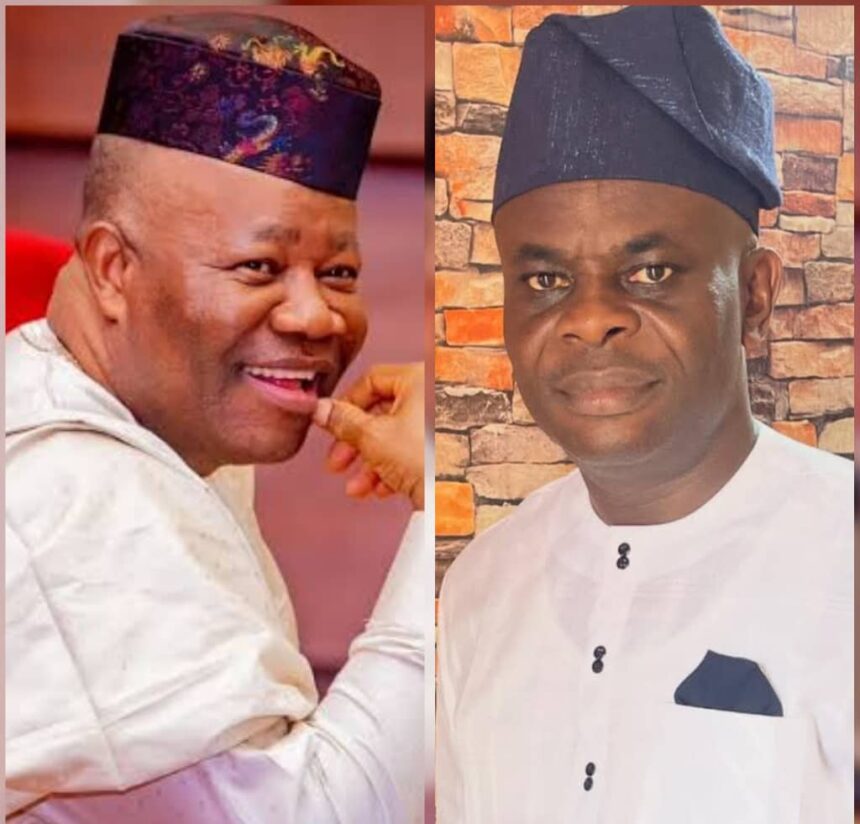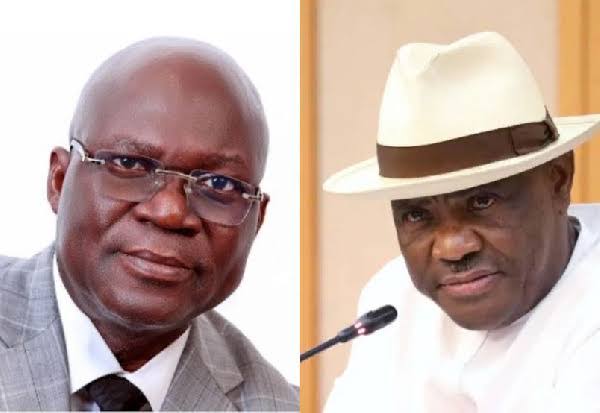The South-South region of Nigeria has been called upon to stand in solidarity with Senate President Godswill Akpabio and President Bola Ahmed Tinubu, as the country witnesses a surge in developmental initiatives under the administration’s Renewed Hope Agenda.
The appeal, made by Associate Professor Godfrey Pondei, emphasized the need for political unity and sustained support to consolidate the socioeconomic gains currently unfolding in the region.
One of the flagship projects cited as evidence of the administration’s commitment to national development is the Coastal Highway.
The project, which had long been regarded as overly ambitious or unlikely, has now become a symbol of progress under President Tinubu.
READ ALSO: #Akpabio: #Natasha Ignored My Calls
For the Niger Delta and the broader South-South zone, the highway is viewed not only as a transport route but as a transformative infrastructure that could foster economic integration and social mobility.
According to Pondei, the speed and seriousness with which the highway is being executed underscores the effective partnership between the executive and legislative arms of government.
He attributed much of this cooperation to the leadership of Senate President Godswill Akpabio, whose role in stabilizing the National Assembly has enabled the timely passage of key legislative reforms.
Akpabio, who hails from the South-South region, holds one of the most powerful positions in Nigeria’s political hierarchy. His tenure as Senate President, Pondei argues, is not merely symbolic but strategically vital for the region’s influence on national policy.
Under Akpabio’s leadership, several landmark tax reform bills have been passed, including the Nigeria Revenue Service Bill, the Nigeria Tax Administration Bill, and the Joint Revenue Board Bill. These laws aim to modernize the country’s fiscal system and enhance revenue collection.
Pondei stressed that the South-South region must avoid the mistakes of the past, particularly the internal divisions that weakened its political leverage. He drew parallels with the administration of former President Goodluck Jonathan, whose presidency, he noted, was undermined in part by internal sabotage and a lack of unified regional support.
He warned against allowing such a scenario to repeat, especially at a time when the region enjoys significant representation at the national level.
He called on political actors in the South-South to rise above partisan and ethnic divisions, stressing that unity is essential if the region is to fully benefit from the national development agenda. According to him, Senator Akpabio’s collaborative approach with President Tinubu has set a new precedent in executive-legislative relations, one that was absent during previous administrations, including that of President Muhammadu Buhari’s first term.
Pondei criticized what he described as coordinated smear campaigns aimed at discrediting Akpabio. He argued that such efforts are not just personal attacks but attempts to destabilize the region’s growing political relevance. Referencing incidents of character assassination and politically motivated blackmail, he urged the people of the South-South to reject these tactics and defend the integrity of their leaders.
Highlighting the strategic value of Tinubu’s re-election campaign, Pondei stated that the project should matter even more to the South-South, given the elevated role the region currently plays in the national power structure. He cited recent remarks by political commentator Reno Omokri, who has also called for unity among southern leaders, as a timely and necessary intervention.
Pondei further urged Akpabio to engage more directly with leaders across the region through consistent dialogue and consensus-building. He suggested that such efforts would not only reinforce political stability but also ensure that the South-South remains a key player in shaping the country’s future development.
In closing, he emphasized that the region stands at a pivotal moment in its history. With major infrastructure projects underway and significant political representation at the federal level, the opportunity to chart a legacy of progress and solidarity must not be squandered. He warned against yielding to detractors, whom he labeled as “political puppets” and “potbellied betrayers,” urging the region to remain steadfast and focused on long-term development goals.
Pondei concluded by reiterating that support for Akpabio and Tinubu is not merely a political gesture, but a necessary strategy to secure the South-South’s place in Nigeria’s evolving political and economic landscape. He called on all stakeholders to “enshrine a legacy of solidarity and sustainable development,” affirming that this moment must be seized to build a better future for the region and the nation as a whole.





